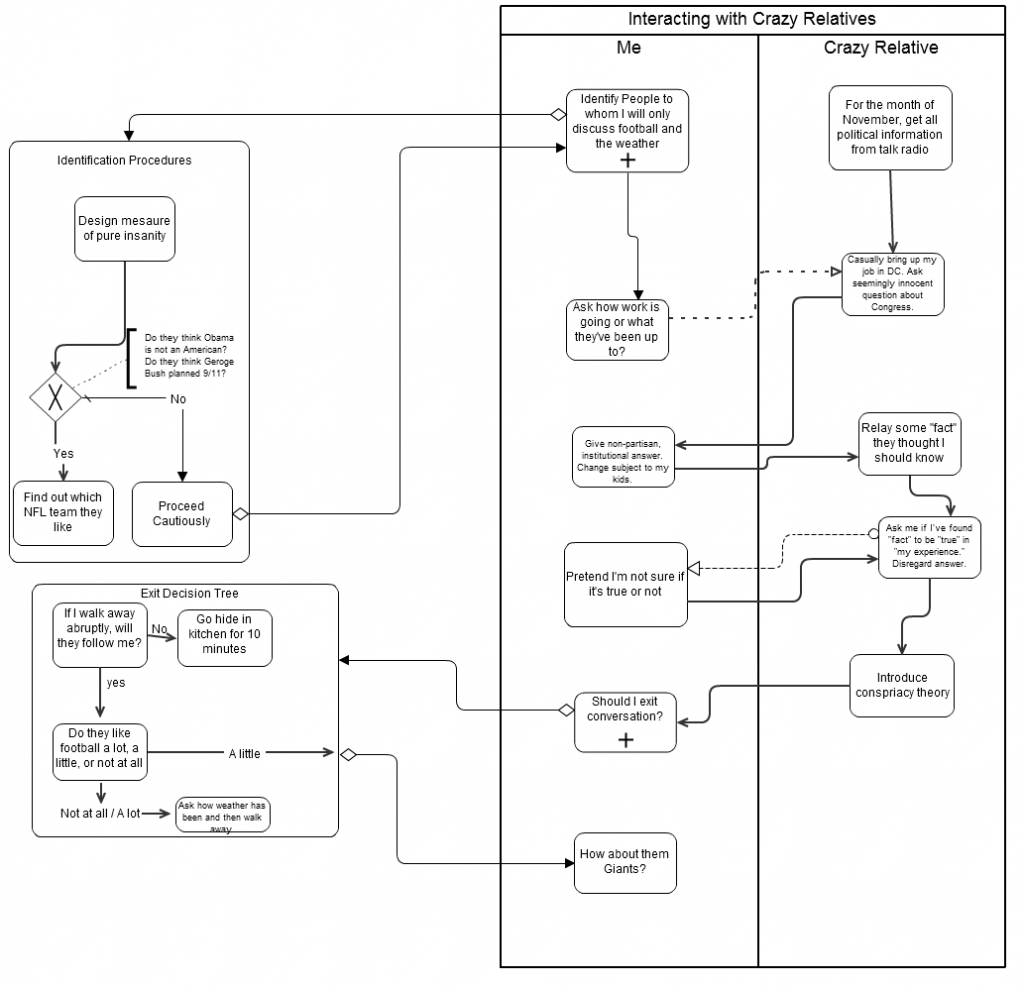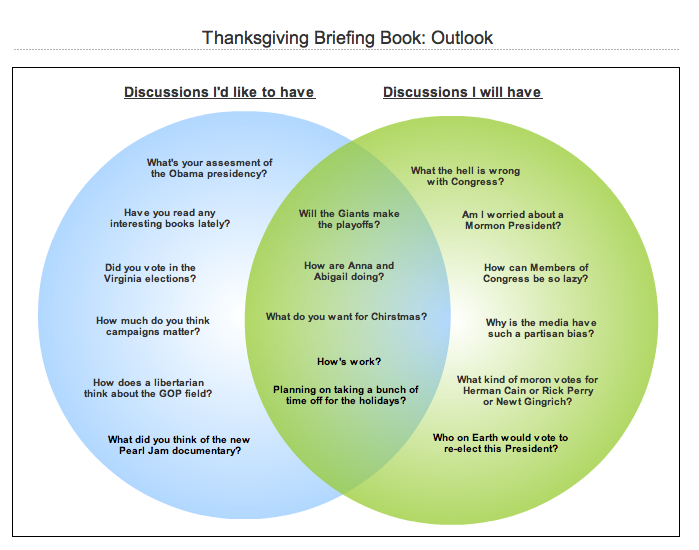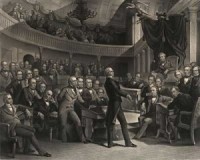In the wake of Representative Frank’s decision to retire, there has already been some speculation about who will be the top Democrat on the House Committee on Financial Services next Congress. But wait, you say, isn’t that simply a matter of looking at the seniority list of the committee democrats, and seeing that Rep. Waters is the most senior Democrat after Rep. Frank?
Nope. And that means this is as good a time as any to discuss the party rules and party infrastructures on the Hill. I’ll do it Q&A style.
Q. Wait, the parties have rules?
A. Yes. Both the Democratic Caucus and the Republican Conference have written rules. The GOP rules are available online. These rules are different than the Rules of the House of Representatives, which are chamber rules approved by a majority of Representatives. The party rules are approved by the caucus/conference, and deal with internal party issues, although as we will see, in some ways they end up structuring the House of Representatives much like the Rules of the House.
Q. What exactly is a caucus/conference?
A. In the loosest sense, it’s simply the collection of all the Representatives who belong to that party. Like when you hear a description of a floor vote. The entire caucus voted against the bill, with no defectors. In the more formal sense, it’s the institutional organization those Members use to promote their common goals. The caucus elects the party leadership, develops legislation and policy positions, and coordinates party messages on those topics. In any case, it’s the institutional substance of the party in the House.
Q. So is the organization just all the Members getting together in a room?
A. No, although that would certainly qualify. In practice, the party organizations are much more robust. They receive annual appropriations in the Legislative Branch Appropriations Act (in FY2011, each party organization got just under $3,000,000), and this money is use to pay for staff and other expenses related to their missions. Each party organization employs about 25 staffers.
Q. Wait, the parties get taxpayer money? That seems odd.
A. It isn’t really. Remember, the caucus/conference are not involved in campaigning or fundraising. Party organizations that engage in those activities — such as the Democratic Congressional Campaign Committee (DCCC) or the Democratic National Committee — are not funded by legislative branch appropriations. They are private entities, and only connected to the caucus/conference in that the caucus elects their leadership. The caucus/conference organizations serve in direct support of the party policy operations in the House, no different in substance than the staff of individual Members or committees.
Q. So how is the caucus/conference structured?
A. Just like any organization, really. There are a set of rules adopted by the caucus/conference that structure internal decision-making. In both parties, the rules provide for election of chamber and caucus leaders, selection of committee chairs, selection of committee and subcommittee assignments, party procedures on floor action, and Member conduct and discipline.
Q. When are the rules adopted?
A. Both parties usually convene in the weeks after the November congressional elections to hold the initial caucus meeting, at which they usually adopt rules and select leaders. The rules, of course, provide for their own amendment, so in theory the caucus can change its rules at any time.
Q. Ok. So back to the committee chair thing. How come Rep. Waters won’t just become the top Democrat on Financial Services next Congress?
A. Because the caucus nominates the chair/ranking of the committee, and seniority is only one factor taken into consideration. There are a bunch of other factors written into the rules, and of course there are politics involved as well.
Q. What do you mean “nominates”?
A. Under House Rule X, clause 5, most committee assignments are actually made by various House resolutions at the beginning of each Congress (for example, H.Res. 31 from the 112th Congress), based on nominations submitted by the caucus. This is pro forma, but illustrates the way the formal actions of the floor are intertwined with the off-floor actions of the caucus/conference.
Q. So how are the committee chairs nominated in the caucus?
A. In the Democratic Caucus, all standing committee chairmen except Rules, Budget, and House Administration are nominated by the Democratic Steering and Policy Committee (DSPC) from among the Members of the Standing Committee, and the nomination is submitted to the caucus for a vote. The DSPC is instructed by the rules to consider merit, length of service on the committee, commitment to the Democratic agenda, and the diversity of the caucus in making its nomination. If they nominate the Member of the standing committee with the most seniority, then by rule the caucus votes only on approval or disapproval of the nomination. If the DSPC nominates someone other than the most senior Member of the standing committee, then alternative nominations can be made within the caucus, and following debate a secret-ballot election is held within the caucus for the nomination.
Q. Who’s on the DSPC?
A. The party leader (Speaker/minority leader) and other leadership Members, caucus leadership Members, and a number of others set by rule: a freshmen Member, 12 regional, the Chair/Ranking of several committees, and up to 15 at-large Members chosen by the party leader.
Q. You mentioned that a standing committee Chair/Ranking was nominated by the DSPC from among the Members of the standing committee. How are they chosen?
A. Much the same way. The DSPC recommends Members for committees, and the nominated slates are ratified by the caucus. There are specific rules that guarantee all Members at least one assignment, and that prohibit Members from holding multiple high-value committee slots.
Q. Are there often contested elections in the caucus, for committee chair or for party leader?
A. Not regularly. Most elections are uncontested and approved by acclaim. Even races that might start out contested — such as the race between Rep. Hoyer and Rep. Clyburn for Whip in 2010 — are settled by negotiations prior to any actual vote. Two recent races that did come to a vote were the 2006 race between Rep. Murtha and Rep. Hoyer for Majority Leader, and the 2008 race between Rep. Dingell and Rep. Waxman for chair of the Energy committee. In 2010, Rep. Shuler ran a “protest” race against Rep. Pelosi for party leader.
Q. Can you ever find out how people voted in the secret ballot?
A. Not unless they say. Often, however, candidates in a party election will try to accumulate public endorsements, which in turn reveal a sizable percentage of the positions within the caucus. Matthew Green has an excellent short article on the 2006 race between Rep. Hoyer and Rep. Murtha that covers a lot of the dymanics of these party elections.
Q. Are these procedures the same in the Republican conference?
A. Not exactly. But in general structure, yes. If you’d like to see the details, the GOP conference rules are online.
Q. So how does the caucus develop policy?
A. Well, for one they talk about it! Each caucus/conference has regular closed meetings of the membership, at which the party leadership as well as rank-and-file Members can candidly discuss both short-term and long-term policy. As mentioned above, the party organizations also employ staff who work on policy development. And finally, the caucus is integrated into the network of leadership, committee, and personal Member offices, with whom it has regular contact and conversations.
Q. You mentioned that the caucus rules interact with the House rules on the floor. What did you mean?
A. Both caucuses have rules that bind the leadership to certain uses of House rules. For example, under House rules the Speaker has wide latitude to entertain motions to suspend the rules. GOP party rules, however, put further limitations on what kinds of suspensions may be entertained when the party controls the Speakership. Similarly, Democratic Caucus rules prohibit Democratic Members of the Rules Committee from supporting any closed rule when in the minority, subject to certain waivers.
Q. Can the caucus/conference bind Member voting decisions like that?
A. Technically, no. Members are only beholden to the caucus to the degree they find it a beneficial arrangements. Of course, most Members do find it beneficial to be part of a party. Both caucus/conferences rules have provisions for disciplining Members, including expulsion.
Q. How else does the caucus supplement House rules?
A. One example would be term limits for committee chairs. In some Congresses, such limits have been placed directly into House rules. In others, however, they have not. In such cases, a caucus rule that included term limits would effectively achieve the same goal (for any party that had that rule), if the Members of the caucus sought to enforce it.
Q. What else does the caucus expect of Members?
A. Typically, that they remain members of the political party, that they don’t campaign for members of other parties, that they support the caucus-ratified candidates on the floor for committee assignments and Speaker, that they work toward the goals of the caucus when doing things like offering motions to recommit, and that they adhere to code of ethics.
Q. Are the caucus rules ever controversial?
A. They can be, especially when a caucus has factions that are divided over policy issues. One significant aspect of caucus rules is that they structure how much power the leadership has within the party. For example, imagine a hypothetical caucus rule that allowed the party leader to unilaterally make all committee assignments, including chairmen. That would be a powerful leader indeed! Now imagine the opposite: a caucus rule structure that did not allow the party leader to even nominate any committee Members, even to the Rules committee, and instead used a caucus committee to make all nominations. That would be a much weaker institutional leadership position. As currently structured, both party organizations use a mix of these systems, allowing the leadership direct nomination in some cases and using a committee in other cases.
Q. So what’s the outlook for the Financial Services Committee Chair/Ranking for the Dems?
A. Hard to say. There’s a lot of intervening events between now and the first caucus meeting in November 2012. There’s the election, which could shake up the membership of the committee either by current Members being defeated, or by the Democrats winning control of the House and gaining more committee seats. Then there’s the caucus rules, which could always be amended. We don’t know for sure who the Democratic leaders will be after the election. And we don’t know who wants the committee post. So there’s a lot left to be determined. Much of it could be sorted out in the next week on an informal basis, but the die will not be cast until the caucus meets a year from now, and then when the House elects the committee membership in January 2013.







